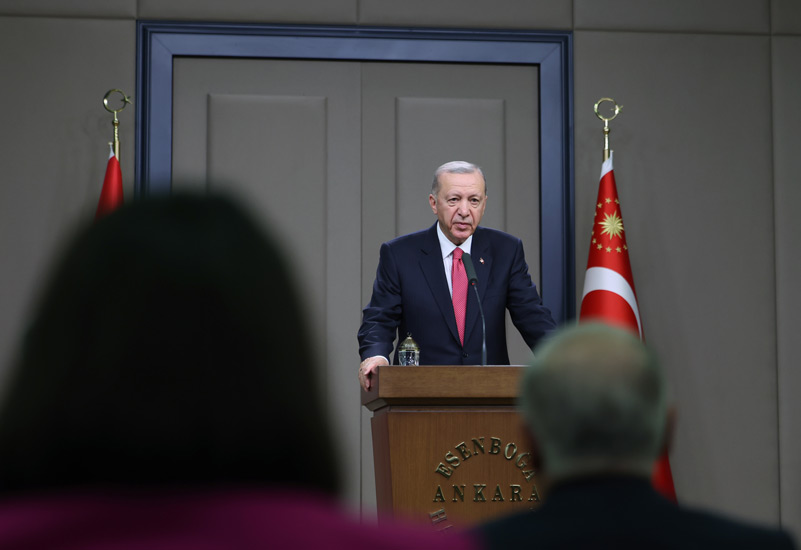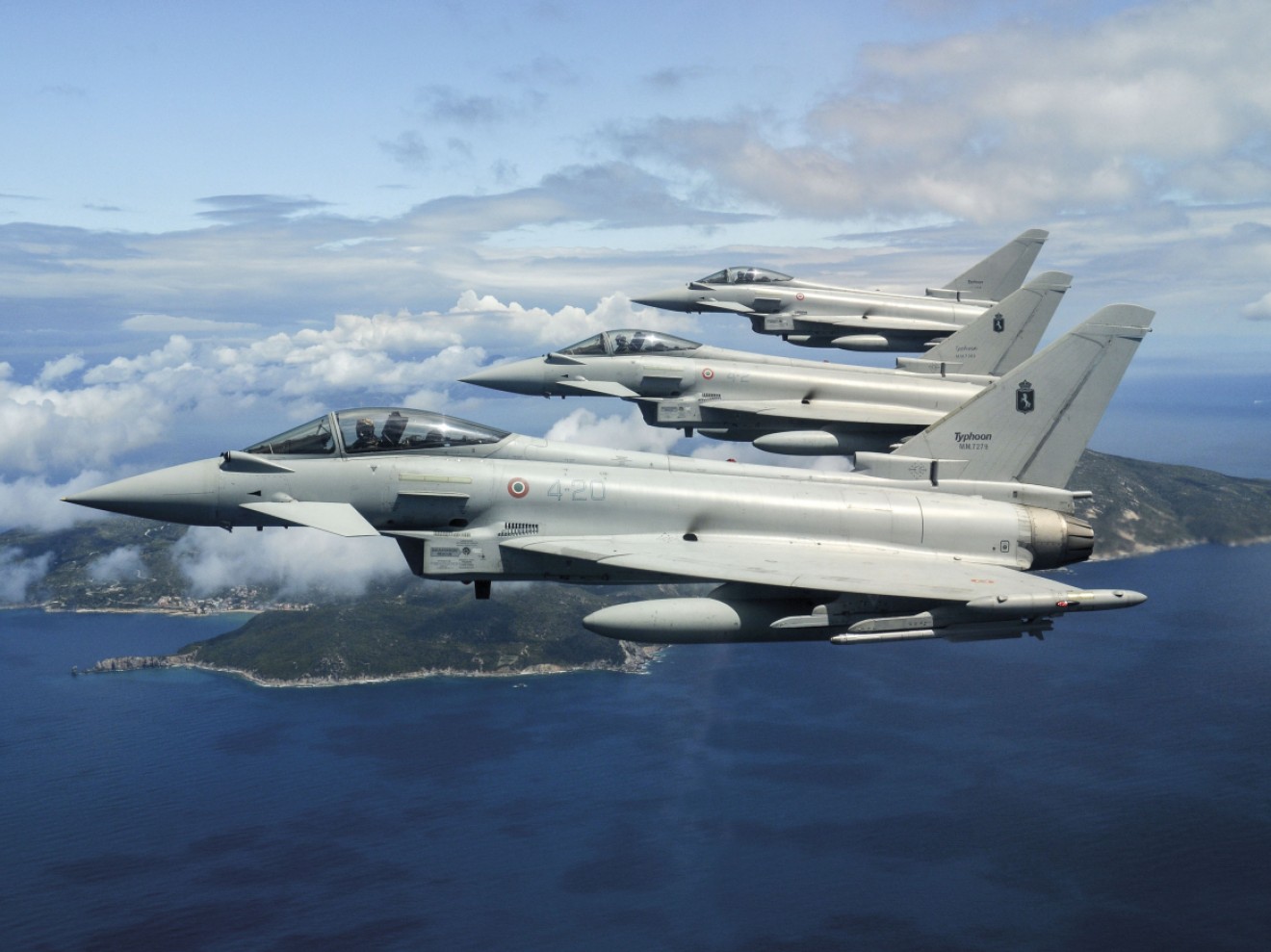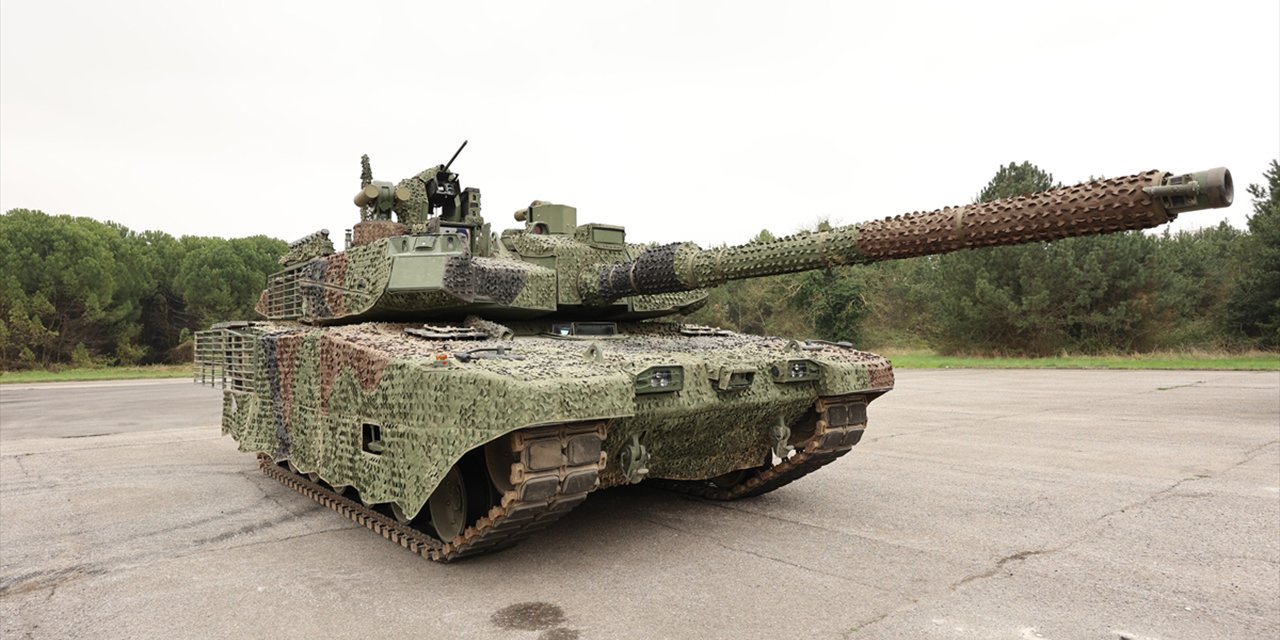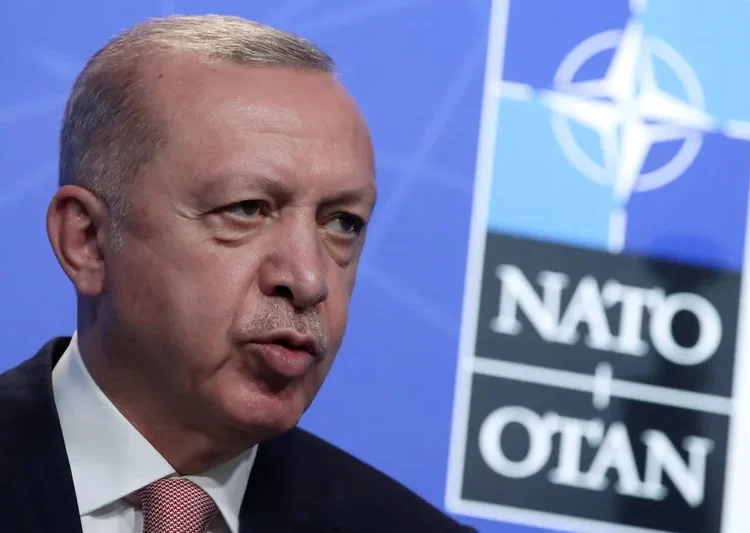Levent Kenez/Stockholm
Turkish President Recep Tayyip Erdogan, before departing for the NATO summit in Washington scheduled to take place July 9-11, addressed a press conference in Ankara on Tuesday, raising the issue of removing barriers to defense industry trade among allies.
At the summit, which will focus primarily on Russia’s invasion of Ukraine, Erdogan signaled that his emphasis would be on achieving peace in Ukraine rather than highlighting military aid for the continuation of the war. He also indicated that he would raise the issue of securing a ceasefire in Gaza. Erdogan also reiterated complaints about restrictions on arms sales to Turkey, in particular those imposed by Germany without naming it, an issue he also raised at last year’s NATO summit in Vilnius.

“Our expectation from the summit is to achieve outcomes that respect the national security priorities of allies and strengthen alliance solidarity and unity. Implementing the decisions we made in Vilnius on counterterrorism and removing barriers to defense industry trade among allies is crucial in this regard,” Erdogan said at the press conference.
According to Ankara several NATO member countries are imposing unofficial arms sales embargoes on Turkey, without officially declaring it. Export permits for weapons and ammunition requested by Turkey have been denied, purportedly due to Turkey’s military presence in Syria and human rights violations.
Turkey managed to overcome some of these barriers by approving NATO membership for Sweden and Finland. Among these, obstacles were lifted for the sale of F-16 jets and modernization kits by the United States, and Canada recently removed barriers, particularly on the sale of optical materials used in unmanned aerial vehicles. In a notice to exporters the Canadian government said military equipment and specific types of weapons destined for Turkey would be reviewed on a case-by case basis, declaring that the policy of denial of exports was “no longer in place.”
On September 30, 2022 Swedish authorities announced that they had lifted the policy of not approving permits for arms sales to Turkey that had been in place since 2019.
In January 2023 the Finnish Ministry of Defense announced the lifting of an arms export embargo on Turkey and granted a license for sales.
However, Ankara is urging Germany to lift various restrictions imposed on arms exports since 2016 and to resolve its reservations regarding Turkey’s interest in acquiring Eurofighter jets.
Turkey requires engines and transmission systems for specific indigenous defense industry projects, which it has been unable to source from Germany. Despite extensive efforts by the government to procure these components abroad for the mass production of the Fırtına howitzer and the Altay tank project, Turkey has faced challenges obtaining them from Germany.

Turkey relies heavily on Fırtına artillery in cross-border operations, particularly in Syria, to support its troops and suppress enemy fire. However, efforts to export them to other countries have been hindered by Germany.
Meanwhile, Turkey maintains its interest in acquiring 40 Eurofighter Typhoon jets, despite the United States advancing a $23 billion sale of F-16 fighter jets to Ankara. In November 2023 Turkey announced negotiations with Britain and Spain for the purchase of Typhoons, despite objections from Germany.
During his visit to Germany on November 17, 2023, President Erdogan responded to a question posed during a press conference with Chancellor Olaf Scholz regarding the possibility of acquiring Typhoon jets from Germany, saying, “Whether Germany provides them or not, is Germany the only place in the entire world that produces warplanes? We can procure them from many other places.”
Erdogan’s remarks were interpreted as a continuation of the disagreement between the two countries. However, with Turkey’s potential acquisition of F-16s from the US, defense industry experts suggest that Turkey’s having an alternative may influence Germany’s stance on the Eurofighter issue and that Turkey’s potential purchase from American suppliers could influence the decision-making process in favor of European manufacturers. Ankara previously announced that even if it acquires the F-16s, it will purchase different jets to diversify its fleet. One reason for this is that in 2021, the US administration officially removed Turkey from the F-35 Joint Strike Fighter program due to Ankara’s purchase of the Russian S-400 missile system in 2017.
Military experts claim that Turkey’s air superiority over the Aegean Sea has declined due to the warplanes Greece has procured and ordered in recent years. Nordic Monitor previously reported that Mesut Hakkı Caşın, the Turkish president’s advisor on security and foreign policy, said in December 2022 that the balance of power between Turkey and Greece changed following Western military assistance to Athens, adding that the Turkish military’s job has become more difficult. He also said air superiority had passed to Greece following its purchase of new fighter jets.
The Eurofighter Typhoon jets are produced by a consortium comprising Germany, Britain, Italy and Spain, represented by Airbus, BAE Systems and Leonardo.

Discussions on arms exports from Germany to Turkey also prompted debates in the German parliament last year. In response to a question raised by Sevim Dağdelen, a member of the German parliament of Turkish origin, the Ministry of Economy disclosed that arms exports to Turkey in 2023 were minimal. As of early December 2023, the German government had approved only 17 export licenses totaling 1.22 million euros.
Germany initially restricted arms export licenses to Turkey following an attempted coup on July 15, 2016 and unilateral Turkish military operations in northern Syria. In recent parliamentary inquiries, it was clarified that export licenses granted for Turkey in 2023 were limited to NATO-linked cooperation projects and specific orders. Additionally, licenses were issued for exports related to scanning, hazardous material cleanup, communications equipment and hunting rifles. Germany had previously emphasized only selling spare parts necessary for Turkey’s navy.
Turkey has several national aircraft and tank projects, but they suffered setbacks because of the difficulty in finding engines and transmission systems to power the equipment. The Erdogan government has invested heavily in manufacturing engines domestically, with limited success thus far in the testing and integration stages.












